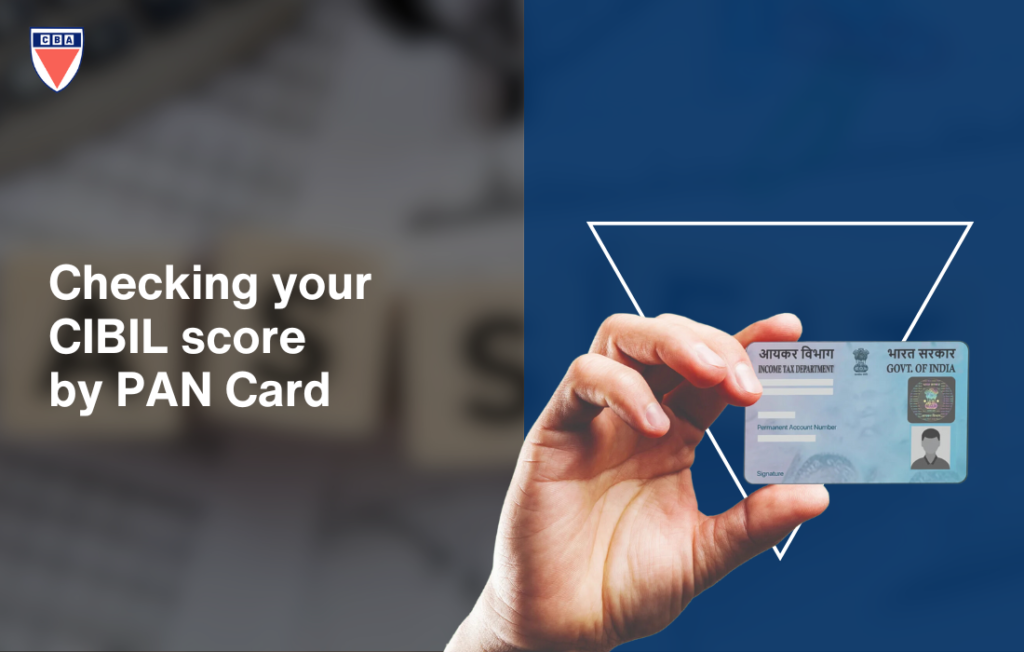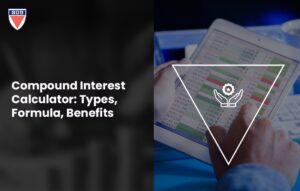How to Check Your CIBIL Score Using a PAN Card
Have you ever wondered how to check CIBIL score by PAN card and why your PAN card is essential in this process? This guide will walk you through the steps to access your free credit report using your PAN card, helping you stay informed and in control of your financial health.
Why Your PAN Card Matters for Credit Reports?
Your PAN card serves as a unique identifier that links your financial activities and credit history to your personal profile. By using your PAN card to check your Credit scores, you ensure that the credit report you receive is accurate and tailored to your identity. This process helps not only access your credit score online but also safeguard against identity theft and inaccuracies.
Steps to Check Your CIBIL Score
You can easily check your CIBIL score online for free using your PAN card. Many platforms offer a free Credit score service, which allows you to stay updated on your credit health without additional costs. Simply enter your PAN card details, and you can access your credit report instantly.
Why a Good Credit Score is Important
Maintaining a good credit score is crucial for various financial decisions, especially when applying for a loan or credit card. A high score increases your chances of approval for loans with favorable terms, while a low score can lead to rejections or higher interest rates.
Proactive Steps to Maintain a Healthy Credit Profile
Beyond just checking your score, understanding how to manage and improve it is essential. Here are a few tips:
- Pay your bills on time to build a positive payment history.
- Keep your credit card bills low to maintain a healthy balance.
- Regularly check credit score for errors or discrepancies.
By following these steps, you can ensure your financial stability and stay on track for future loans or credit opportunities. One key aspect is calculating credit score, which helps you understand where you stand financially. You can easily access your credit score page to check your current status and review your CIBIL score using your PAN card.
Taking control of your financial future starts with understanding your credit. Use your PAN card to check your CIBIL score today, access your credit score page, and make informed decisions for a secure financial future.
What is a Credit Score report?
Understanding the CIBIL Score
Your CIBIL score is a three-digit number ranging from 300 to 900, representing your creditworthiness. It is based on your credit history and financial behavior, as reported by various lenders and credit rating agency. Here’s a breakdown of how your CIBIL score is calculated and why it’s important:
The Significance of the CIBIL Score
- Creditworthiness Indicator: Your CIBIL score is a crucial indicator of your creditworthiness, helping lenders assess your reliability in repaying borrowed funds.
- Loan Approvals: A higher score improves your chances of loan approval, often resulting in better terms and conditions.
- Interest Rates: Lenders often offer lower interest rates to individuals with higher CIBIL scores.
- Credit Limits: A good score can lead to higher credit limits on credit cards and loans.
- Employment Opportunities: Some employers may review your credit score as part of their hiring process, especially for positions involving financial responsibilities.
Factors Affecting Your CIBIL Score
Several factors influence your CIBIL score, and understanding them can help you manage your credit profile more effectively:
- Payment History (35%): This is the most significant factor, reflecting your track record of paying bills, loans, and credit card dues on time. Consistent, timely payments positively impact your score, while missed or late payments can lower it.
- Credit Utilization Ratio (30%): This ratio indicates how much of your available credit you’re using. It is calculated by dividing your total outstanding credit by your total credit limit. Keeping this ratio low (ideally below 30%) is favorable for your credit score.
- Credit History Length (15%): The length of your credit history plays a role in determining your score. A longer credit history provides more data on your credit behavior, which can positively impact your score.
- Types of Credit (10%): Having a mix of credit accounts, such as credit cards, installment loans, and mortgages, can positively affect your score. It demonstrates your ability to manage various types of credit.
- Recent Credit Inquiries (10%): The number of times lenders have accessed your credit report recently. Multiple inquiries within a short period can negatively impact your score, as they might indicate financial stress or a higher risk.
Why Use Your PAN Card to Check Your CIBIL Score?
Role of the PAN Card in Credit Reporting
Your Permanent Account Number (PAN) card is a unique identifier issued by the Income Tax Department of India. It serves as a vital tool in financial transactions and tax reporting. When it comes to credit reporting:
- Identification: The PAN card helps link your credit history and CIBIL score to your unique identity, ensuring that the credit report you receive is accurate and personalized.
- Security: Using the PAN card provides a secure method of accessing your credit information, reducing the risk of identity fraud.
- Convenience: The PAN card simplifies the process of verifying your identity, making it easier to access your CIBIL score and credit report.
Benefits of Using PAN Card
Using your PAN card to check your CIBIL score offers several benefits:
- Accurate Reporting: Ensures that the credit report and score are accurately linked to your financial history.
- Faster Processing: The PAN card speeds up the verification process, allowing you to receive your credit report quickly.
- Prevention of Errors: Helps in preventing errors that could arise from mismatched identification, ensuring that your credit report reflects your true financial behavior.
How PAN Card Facilitates the Process
The PAN card is used by credit bureaus to verify your identity when you request your credit report. By entering your PAN card number along with other personal details, the credit bureau can accurately locate and pull up your credit history, ensuring that you receive an accurate CIBIL score.
How to Check Your CIBIL Score Using PAN Card
Step-by-Step Process
Checking your CIBIL score using your PAN card is a straightforward process. Here’s how you can do it:
Step 1: Visit the CIBIL Website
- Website: Go to the official CIBIL website at www.cibil.com or directly to the CIBIL score check page.
- Navigation: Look for options like “Get Your CIBIL Score” or “Check Your Credit Report” on the homepage.
Step 2: Choose the CIBIL Score Option
- Select the Service: Click on the option to check your CIBIL score. You might find options for obtaining your credit report, including free and paid services.
Step 3: Fill Out the Form
- Personal Details: Enter your personal information in the form, including your name, date of birth, PAN card number, and contact details.
- Additional Information: You may need to provide additional details such as your address and employment information.
Step 4: Verify Your Identity
- PAN Card Number: Enter your PAN card number to verify your identity. This step ensures that the credit report you receive is correctly matched to your identity.
- Security Questions: You may be asked to answer security questions related to your credit history to further verify your identity.
Step 5: Receive Your CIBIL Score
- View Report: Once your identity is verified, you will receive your CIBIL score and credit report. This information may be displayed on the screen or sent to your registered email address.
- Download Option: You might have the option to download your credit report for future reference.
Alternative Methods to Check Your CIBIL Score by pan
- Mobile Apps: Many financial services and credit monitoring apps offer the ability to check your CIBIL score using your PAN card. These apps provide a convenient way to monitor your credit score on the go.
- Credit Monitoring Services: Various third-party credit monitoring services allow you to check your CIBIL score and credit report using your PAN card. These services often provide additional features such as alerts and detailed insights.
4. What to Do If Your CIBIL Score is Low
Understanding the Reasons for a Low CIBIL Score
If your CIBIL score is lower than expected, it’s important to understand the factors contributing to this:
- Late Payments: Missing or delaying payments on loans, credit cards, or other financial obligations can negatively impact your score.
- High Credit Utilization: Using a large portion of your available credit can reduce your score. It indicates higher financial stress and increased risk.
- Errors in Credit Report: Incorrect information or discrepancies in your credit report can affect your score. Regularly reviewing your report helps catch and correct such errors.
- New Credit Accounts: Opening multiple new credit accounts within a short period can impact your score, as it might suggest financial instability or overreliance on credit.
Steps to Improve Your CIBIL Score
Understanding the Reasons for a Low CIBIL Score
1. Pay Your Bills on Time
- Set Up Reminders: Use reminders or automatic payments to ensure timely payment of bills and loan EMIs.
- Prioritize paying off high-interest debt and overdue accounts.
2. Reduce Credit Utilization
- Manage Balances: Keep your credit card balances low relative to your credit limits. Aim to use less than 30% of your total credit limit.
- Increase Limits: Request a credit limit increase to improve your credit utilization ratio, but avoid increasing your spending.
3. Check Your Credit Report for Errors
- Review Regularly: Regularly check your credit report for inaccuracies or outdated information.
- Dispute Errors: Dispute any incorrect details with CIBIL to ensure your credit report accurately reflects your financial behavior.
4. Avoid Unnecessary Credit Inquiries
- Limit Applications: Apply for new credit accounts only when necessary. Avoid making multiple applications within a short timeframe.
- Soft Inquiries: Regularly checking your own credit report (soft inquiry) does not affect your score.
5. Maintain a Healthy Credit Mix
- Diversify Accounts: Having a mix of credit accounts, such as credit cards, personal loans, and auto loans, can positively impact your score.
- Manage Different Types: Demonstrate your ability to handle various types of credit responsibly.
Use Credit Monitoring Tools
- Monitor Regularly: Utilize credit monitoring tools to track your score and receive alerts about any significant changes or potential issues.
- Analyze Trends: Analyze trends in your credit report to identify areas for improvement.
5. Common Myths About CIBIL Scores
Myth 1: Checking Your CIBIL Score Will Lower It
- Fact: Checking your own CIBIL score is a soft inquiry and does not impact your score. It’s a good practice to review your score regularly.
Myth 2: Only Your Credit Card Payments Affect Your CIBIL Score
- Fact: Your credit score is influenced by various factors, including loan payments, credit utilization, credit history, and more. All aspects of your credit facilities go on.
Myth 2: Only Your Credit Card Payments Affect Your CIBIL Score (Continued)
- Fact: Your credit score is influenced by various factors, including loan payments, credit utilization, credit history length, the diversity of credit accounts, and recent credit inquiries. All these elements contribute to your overall creditworthiness.
Myth 3: A High Salary Guarantees a Good CIBIL Score
- Fact: Your salary alone does not directly affect your CIBIL score. Instead, it is your credit management behavior, such as timely payments, responsible credit usage, and the length of your credit history, that determines your score. A high income does not compensate for poor credit habits.
Myth 4: Closing Old Credit Accounts Will Improve Your CIBIL Score
- Fact: Closing old credit accounts can potentially harm your score. Older accounts contribute positively to your credit history length and overall credit utilization ratio. It’s generally better to keep old accounts open and manage them responsibly.
Myth 5: Only Individuals with Bad Credit Need to Check Their CIBIL Score
- Fact: Regularly checking your CIBIL score is important for everyone, regardless of their credit status. It helps you monitor your credit health, spot errors, and stay informed about changes in your credit profile.
Tips for Maintaining a Good CIBIL Score
Maintaining a good CIBIL score is crucial for financial health and accessing favorable credit terms. Here are some tips to help you keep your score in top shape:
1. Build a Positive Credit History
- Timely Payments: Ensure all your bills, loans, and credit card payments are made on time. Set up reminders or automated payments to avoid missing due dates.
- Responsible Usage: Use credit responsibly by not overspending and avoiding unnecessary debt.
2. Keep Your Credit Utilization Low
- Manage Spending: Avoid using more than 30% of your available credit limit. If possible, pay off balances in full each month to keep utilization low.
- Increase Credit Limits: If you have a good payment history, consider requesting a credit limit increase. This can improve your credit utilization ratio, but be cautious not to increase your spending.
3. Avoid Missing Payments
- Set Up Alerts: Use payment reminders or alerts to ensure you never miss a due date.
- Automatic Payments: Consider setting up automatic payments for at least the minimum amount due on credit cards and loans.
4. Monitor Your Credit Report Regularly
- Review Reports: Regularly check your credit report for any inaccuracies or discrepancies. Obtain your report from all major credit bureaus to ensure accuracy.
- Dispute Errors: Promptly dispute any incorrect information with the credit bureau to correct your credit report to multiple credit applications.
5. Keep Old Accounts Open
- Long Credit History: Maintain older credit accounts to benefit from a longer credit history, which positively impacts your score.
- Manage Accounts: Ensure old accounts are kept in good standing, even if they are not actively used.
6. Use Credit Responsibly
- Limit New Applications: Apply for new credit accounts only when necessary. Frequent applications can impact your score negatively.
- Diverse Credit Mix: Manage a mix of credit accounts, such as credit cards, loans, and mortgages, to show your ability to handle different types of credit.
7. Utilize Credit Monitoring Tools
- Stay Informed: Use credit monitoring tools to keep track of your score and receive alerts about significant changes or potential issues.
- Analyze Trends: Regularly review trends in your credit report to identify any areas that need improvement.
Conclusion
Checking your CIBIL score using your PAN card is a straightforward and essential process for managing your credit health. By understanding how to check your score, interpreting the results, and taking proactive steps to maintain or improve your score, you can ensure a strong financial profile and increase your chances of obtaining favorable credit terms.
Whether you’re planning to apply for a loan, seeking better credit card offers, or simply wanting to keep your financial affairs in order, regularly monitoring your CIBIL score is a crucial part of effective credit management. Remember, a good CIBIL score reflects responsible credit behavior and can open doors to various financial opportunities.
So, the next time you need to check your CIBIL score, use your PAN card to access accurate and up-to-date information. Stay informed, manage your credit responsibly, and make the most of your financial opportunities.






